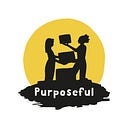A report isn’t just for International Day of the Girl…
On 14th October 2021, as part of our International Day of the Girl and birthday celebrations, we launched a seminal report about the State of Out-of-School Girls in Sierra Leone. We had an incredible launch event in Freetown, with girls, mentors, development partners, allies, the media and Government officials. Girls and mentors took participants on their Girls’ Circles journey and explored important data from the report. Later, they shared a stage with high level policy makers and demanded their rights.
Why do we not stop at a launch event?
Yes, some girls were at the event but the 2,239 girls who were interviewed to generate this rich data and insights were not. It isn’t enough to talk about feminism as an organisation, we need to live it and breathe it — this extends to our learning work. This means valuing girls’ voices and one way of living this is by sharing the report back with them, after all, it is their information and their lived realities.
How are we doing this?
While “plain English summaries” are often used by researchers to promote access to reports, we know that two thirds of the girls featured in the report cannot read, so we need to be more hands on.
We are leveraging visits to communities to hold interactive sessions with girls and others involved in the data collection process. We use simple, printed infographics as our key communication tool, gathering girls, mentors and female volunteers to talk through the key data in their safe space. We ask girls questions to help them make sense of what they’re hearing but to also test our own analysis and understanding of the data.
How are girls reacting to the Report?
Girls feel seen and heard — there is a sense of solidarity with other girls around Sierra Leone, girls recognise that they are not alone in the challenges and situations they are facing.
They also added stories to the data. In one district, Falaba, almost half of the girls interviewed are married or cohabitating — the girls shared that this is because their communities are inaccessible and they cannot travel to secondary schools, as soon as they take their primary school examinations, the next step is marriage because there is no alternative for them. While in Bombali, girls shared that they felt that child marriage is lowest in Western Area Rural (at 5% of girls compared to 20% of girls in Bombali) because parents pay more attention to their girls in those communities. They went on to say that the laws in place to protect girls from violence and child marriage are actually implemented there, whereas in Bombali, community stakeholders compromise on these issues and let prepetrators of violence against girls get away with it.
They also shared that poverty has a key role to play in child marriage, one girl said that their parents would easily give them to a man for less than 10,000 SLL (less than 1 USD) while in Bombali, some girls shared that parents give their girls to men in exchange for labour on their farms. On the issue of children, some girls in Moyamba highlighted that their husbands make the decisions about family planning. They also shared the stigma of promiscuity and prostitution that is associated with family planning in their communities — stories we have heard before from mentors and girls.
While there were moments of sadness during these feedback conversations, there were also moments of solidarity, joy and evidence of resistance. Girls and mentors discussed solutions and the way forward. One girl in Karene specifically asked about the new National Policy on Radical Inclusion in School Policy and what the government is doing to enforce this policy and other laws that protect girls against violence. While others shared stories of their resistance to challenges facing them, including negotiating to delay their marriages, and their collective work as girls, such as groundnut farming.
What next?
As a team, sharing the findings back to the girls we interviewed for this report brings us so much joy. Not only do girls, mentors, community members and partners appreciate these sessions but they also provide us with insight into how far these girls have come on their Girls’ Circles journey. Hearing girls’ stories of how they are agitating for the change they want, as individuals and collectively, affirms what we know — that to be a girl is to resist, and girls are primed to change their lives for the better when there is a shift in their ability to access and imagine their choices.
We are just getting started on our journey of feeding back to this group of girls and of resourcing their resistance. Watch this space.
Co-written by Haja Sowa, Haja Umu Jalloh, Mary J.B. Kamara, Mary Lusenie and Emma Mulhern
This work has been funded by UK aid from the UK government; however the views expressed do not necessarily reflect the UK government’s official policies.
